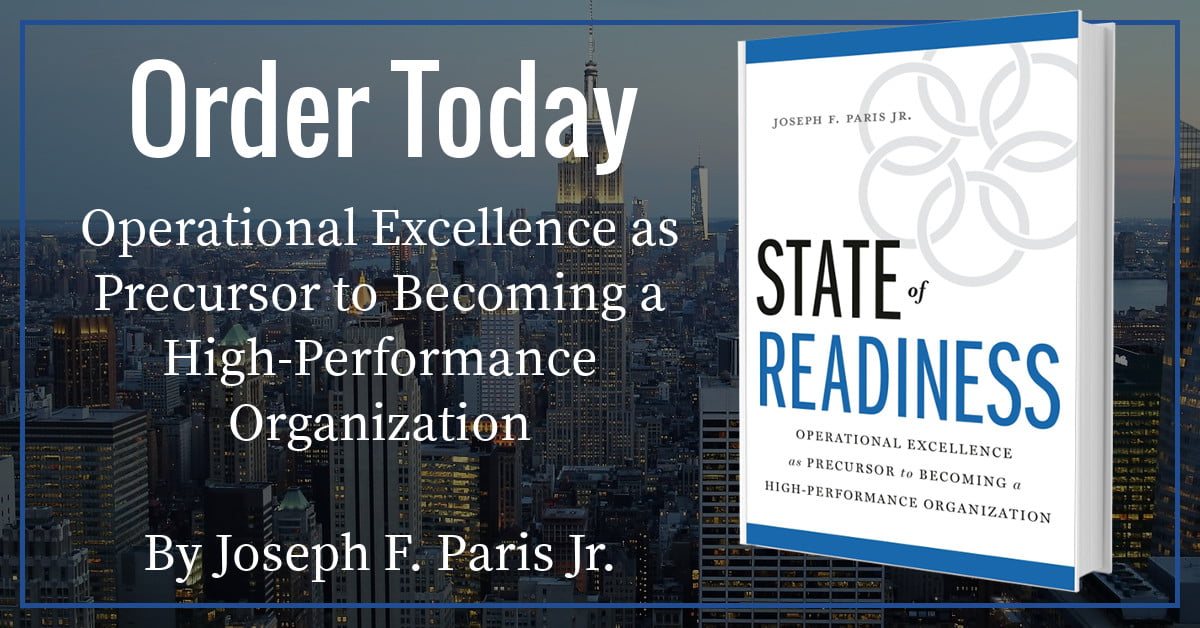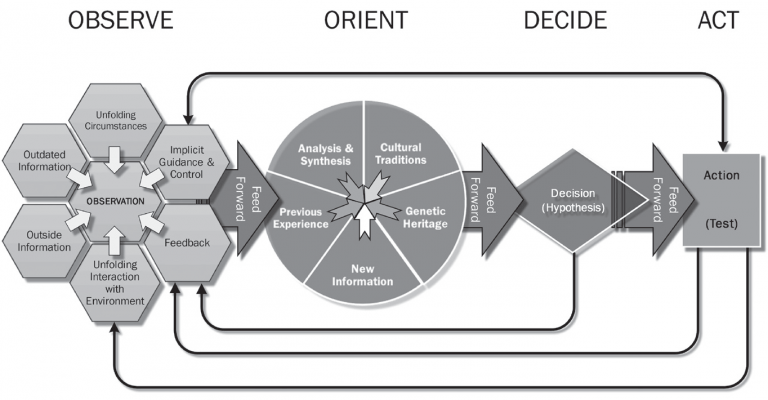I Thought I was Wrong Once…But I was Mistaken
I was in Barnes & Noble over the weekend and beheld a seemingly endless collection of business books. Whilst thumbing through them, I noticed a mantra that almost all of the ones I looked at had in common – it’s not necessary to be completely right all of the time.

Later that evening, I was looking at my own library of leadership books (not to be confused with business books – though there is some overlap) and noticed that they shared the same shunning of the pursuit of perfection in favour of incremental progress.
For instance, in David Freedman’s book, “Corps Business”, he speaks of the “70% solution” that is the Marine Corps yardstick for a go/no-go on a mission plan. The Marines continuously train and educate their personnel. They are trained in the art of adapting to the changes in their environment and they know that they do not have control over all of the variables. Once the first shot is fired, the “fog of war” governs the action.

Then there was Lt. Cmdr. Jon Cannon’s book “Leadership Lessons of the Navy Seals ” which hammers away on the importance of building a cohesive team, continuously improving the skills of the individual team members, and not waiting for the “no risk solution”.
And in Alan Axlerod’s book, “Patton on Leadership”, he quotes General George Patton as saying, “When a decision has to be made, make it. There is no totally right time for anything”. But there can be a totally wrong time.
And of course, there is me. Though I am not in the military, I fully agree that “plans are nothing, planning is everything” – Dwight D Eisenhower .
Take my golf game for instance – which is the closest I ever get to firing a shot and inflicting damage. In fact, I refer to my golf clubs as “weapons of grass reduction”. When I step up to the tee, I have a plan. I know what my tee-shot is going to do, and then my approach shot, then two-putt for par and on to the next hole. However, these well thought out plans evaporate on my backswing and I must be agile and reactive enough to complete the mission.
So I believe it is more important to be successful than to be right – and success comes down to execution; the ability to make continual forward progress, and being nimble enough to adapt to the unexpected.
But far too many people want to be right and look for the perfect solution – as if one actually existed. They want to win the war in one battle and they want to make sure that everything goes precisely to plan. They want that the results will be dead-solid-perfect to what was expected.
This is not only wrong-thinking; it is delusional and puts the initiative – and the company – at great risk. The real value of an Operational Excellence (Lean / Six-Sigma and Leadership) initiative is creating a culture for progress and change across the entire organization and honing a unified approach and methodology towards incremental improvement. Success will come if everyone is working as a team toward a known goal.
- If we take as a given all of the normal assumptions about achieving success in an Operational Excellence initiative;
- The support of executive leadership
- Sufficient resources and budget in support of the mission.
- The very best people in the organization assigned to the most important or critical problems.
- First-class training on the tools and methodologies
- The dedication of the organization to achieve the mission objectives.
If all of the above exists, then the result will be success. And incremental success is better than no success.
Still, I often see the executive leadership treating an Operational Excellence initiative as a fad – like something they read about in the back of an airline magazine.
I hear; “Our Company is Lean”… From that simple response, I know that the company is not Lean. As Lean is about continuous improvement – and the operative word being “continuous” – a company may have a Lean initiative underway, but it can never become Lean.
Sometimes; “We are implementing the Lean (or Six-Sigma)”. There is no such thing as “the” Lean or “the” Six-Sigma – as if it were some SKU that can be pulled from the shelf and installed. Operational Excellence is a philosophy, an approach, a methodology, a mindset and knowledge that requires almost a religious embrace to succeed. It’s not a widget.
Or my personal favourite, “We are doing it ourselves”. There was one company that I recently visited that has had a team of internal resources attacking the same problem for the past few years, with no significant impact. Yet even though the magnitude of the problem is in the tens of millions of dollars, they will budget their normal $40k to educate their people on the tools – the “widgets”. What they really need to do is educate their people how to “see” the problems, then how to “solve” the problems.
“The definition of insanity is doing the same thing over and again – and expecting different results.”
Benjamin Franklin.
The best value that an outsider brings is a fresh perspective. They are not predisposed to the “way it’s always been done”. They question everything and will not leave for granted that which has never been challenged. If you look at some of the greatest company transformations (such as IBM with Lou Gerstner or Fiat with Sergio Marchionne for example); they were accomplished by seasoned business leaders from outside the company and even outside the industry. Insiders oftentimes are at a grave disadvantage in bringing real change as they cannot readily see the problems – because to them, it’s normal.
To paraphrase General George Patton, “Perfection is the enemy of good. By this, I mean that a good plan executed with great vigor now is better than a perfect plan next week. Success is a very simple thing; and the determining characteristics are confidence, speed, and audacity – none of which can ever be perfect, but they can be good.”
In the end, it does not matter if it is you who are right, it matters only that you were successful.
Paris is the Founder and Chairman of the XONITEK Group of Companies; an international management consultancy firm specializing in all disciplines related to Operational Excellence, the continuous and deliberate improvement of company performance AND the circumstances of those who work there – to pursue “Operational Excellence by Design” and not by coincidence.
He is also the Founder of the Operational Excellence Society, with hundreds of members and several Chapters located around the world, as well as the Owner of the Operational Excellence Group on Linked-In, with over 25,000 members.
For more information on Paris, please check his Linked-In Profile at: http://de.linkedin.com/in/josephparis







